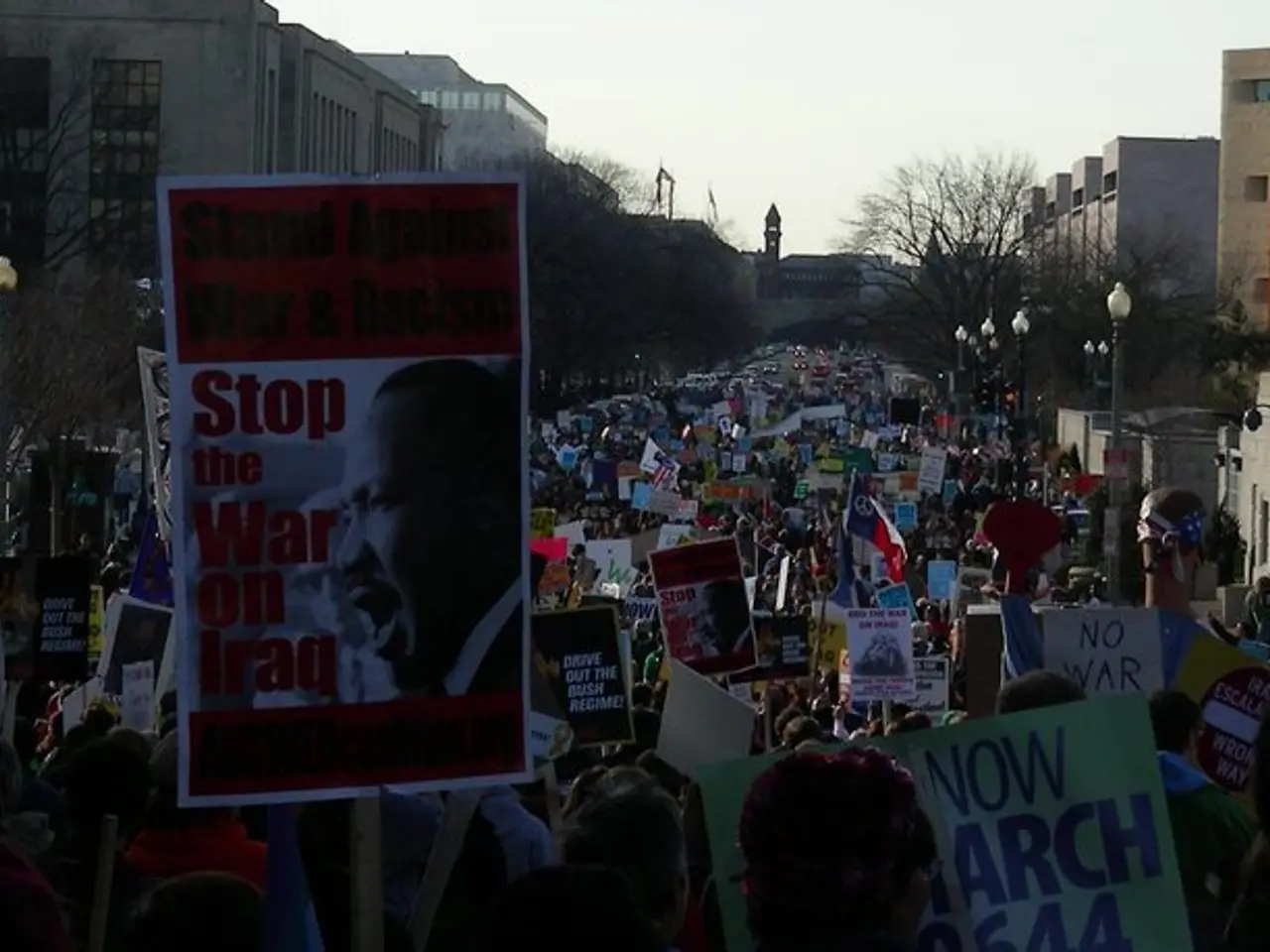Regime Shaken: The Power of a Unified Message Encapsulated in a Slogan
In the heart of Bangladesh, on the 3rd of August, 2024, the Shaheed Minar became the epicentre of a national protest. The crowd swelled to such an extent that there was no space left to stand around the monument and the surrounding areas, as ordinary voices turned into agents of change.
The movement, initially sparked by a Supreme Court decision reinstating a 30% job quota in public sector for descendants of freedom fighters, had escalated into a broad anti-government uprising demanding political change. The one-point demand of the July Uprising was the resignation of Prime Minister Sheikh Hasina and her entire cabinet.
The seeds sown in despair had grown into defiance, as people marched through tear gas and bullets. The heart of the protest was Nahid Islam, a leading coordinator of the Anti-Discrimination Student Movement. At Shaheed Minar, Nahid bhai declared the one-point demand, stating that it was a formal declaration that left no room for ambiguity, no turning back.
Asif Mahmud later outlined a detailed roadmap for non-cooperation, while Barrister Manzur Al Matin declared the fall of the Hasina regime imminent. An effigy of Hasina was set ablaze under the leadership of Imon Bhai, as the air around the monument was heavy with grief, defiance, and resolve.
The city's arteries were flooded with people, from Shahbagh to Doel Chattar. The one-point demand was the popular demand for the resignation of Prime Minister Sheikh Hasina and the abolition of fascism. Mollik Wasi Uddin Tami recalled joining the march on the 3rd August and taking down Hasina's image from the TSC premises.
The July Uprising, which began in grief, now marched in confidence. Prior to the one-point demand, the student coordinators had issued 9-point demands, which included the resignation of Sheikh Hasina. The events of 3 August marked the defining moment, the day when grief found direction, and fear gave way to hope.
In the following days, the government was ousted, and an interim government was installed. The July Uprising, a testament to the power of the people, served as a reminder that unity can overcome even the most formidable challenges.
In the midst of escalating war-and-conflicts, political tensions soared, as the July Uprising, initially fueled by a Supreme Court decision, morphed into a sweeping anti-government movement demanding drastic political change. General news outlets reported that the one-point demand of the uprising was the resignation of Prime Minister Sheikh Hasina and her entire cabinet. As protestors, led by Nahid Islam, marched through tear gas and bullets towards Shaheed Minar, their voices echoed not just amongst themselves, but across the nation, gaining momentum in the fight for political reform.





